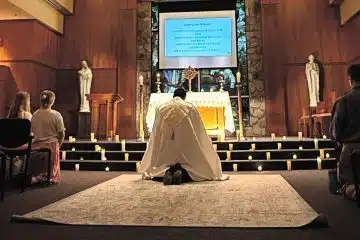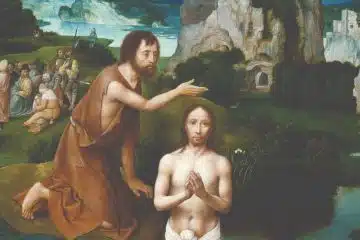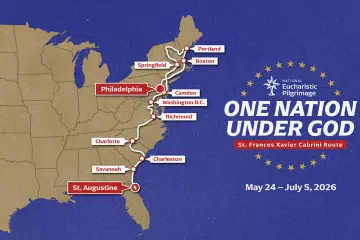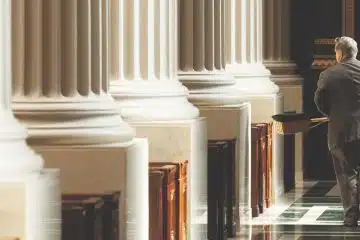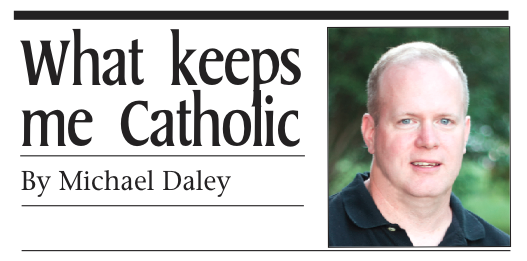Catholic Moment: What keeps me Catholic? Interreligious dialogue
February 28, 2011
By Michael Daley
I don’t often quote Latin, but if you say this phrase loud enough, you can either scare someone out of hell or condemn them to it — “Extra ecclesiam nulla salus” (“Outside the church there is no salvation”).
This is, of course, the classic Catholic phrase that was oft uttered when speaking of non-Catholics and non-Christians. As a result, Orthodox Christians were deemed “schismatics,” while Protestants were termed “heretics.”
Jews were in a class unto themselves however. They were called “perfidious”— deliberately faithless, treacherous and deceitful. In fact, the old Good Friday prayer for Jews offered “that Almighty God may remove the veil from their hearts, so that they, too, may acknowledge Jesus Christ our Lord.” Blind from this truth, Jews had to be delivered from their darkness. Tragically, history is full of far too many examples of how Christians have “delivered” Jews from their supposed lack of faith.
This way of thinking was easy to live out when our interactions with Jews and other world religious traditions were limited or nonexistent. The religious and ethnic bubbles that used to shape us, however, no longer remain.
In ways almost unimaginable a generation ago, diversity and plurality surround us on a variety of levels — language, food, dress and, most important, religion. What used to be a world away is now across the office, down the street, or a computer click away from us.
For Catholics this reality was perhaps seen most concretely in Pope John Paul II’s visit to Assisi in 1986. There he held a historic interfaith gathering for world peace. In words that shouldn’t surprise us, Pope John Paul II said, “With the world religions we share a common respect of and obedience to conscience, which teaches all of us to seek the truth, to love and serve all individuals and people, and therefore to make peace among the nations.”
As one noted theologian has long observed, though, there will be no peace among nations until there is peace among religions. This peace can only be achieved through dialogue.
This encouragement to enter into dialogue with other world religious traditions isn’t something new for Catholics. At the Second Vatican Council (1962-1965), in the “Document on the Relationship of the Church to Non-Christian Religions” (Nostra Aetate), the council fathers urged all Catholics “to enter with prudence and charity into discussion and collaboration with members of other religions.”
Furthermore, the document said, “the Catholic Church rejects nothing of what is true and holy in these religions.”
Not only does the Catholic Church promote a level of basic literacy of its own beliefs and practices, it promotes this concerning other religious traditions as well. Having taught a world religions course over the years, it has been my experience that while learning about other religious traditions, the students also learned more about their own.
Through dialogue — engaged, participatory, reflective, two-way conversations —the church has come to realize that “Those who, through no fault of their own, do not know the Gospel of Christ or His church, but who nevertheless seek God with a sincere heart, and, moved by grace, try in their actions to do His will as they know it through the dictates of conscience — these too may attain salvation” (Dogmatic Constitution on the Church, #16).
In the process, then, though always proclaiming Jesus “as the way, truth, and life,” Catholics are discovering in the words of St. Augustine “that the church has many that God has not; God has many that the church has not.”
Interreligious dialogue. It’s what keeps me Catholic.
Daley is religion teacher at St. Xavier High School and a freelance writer.


